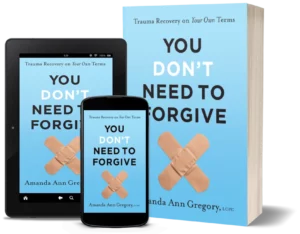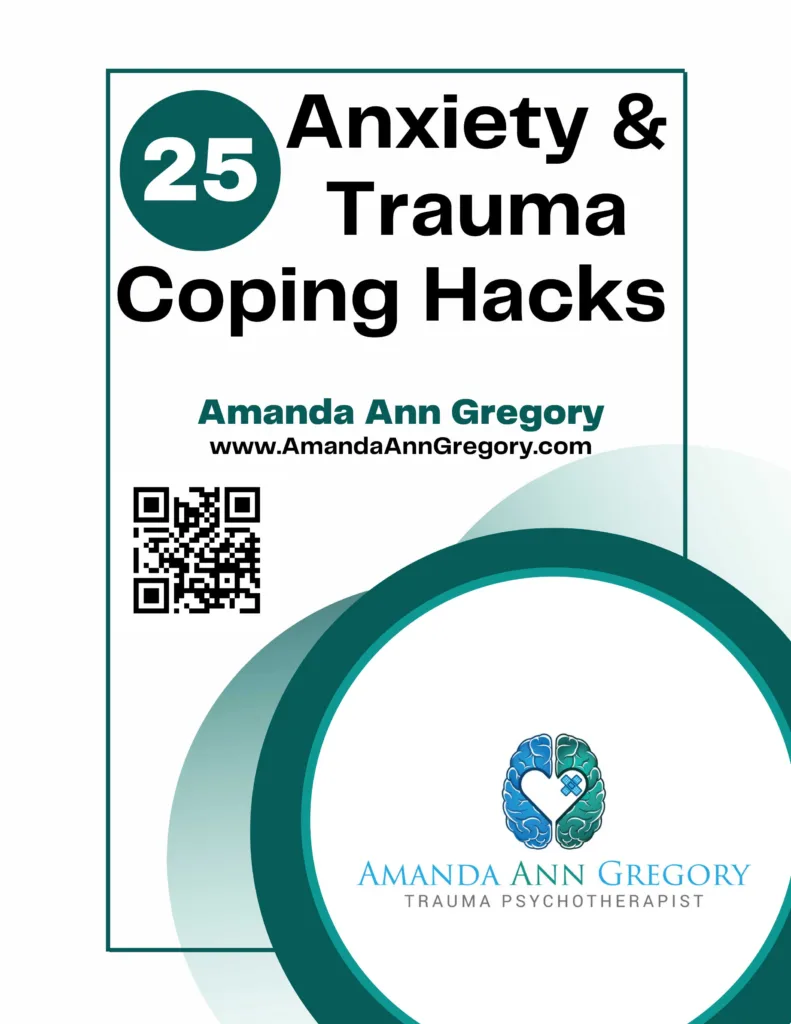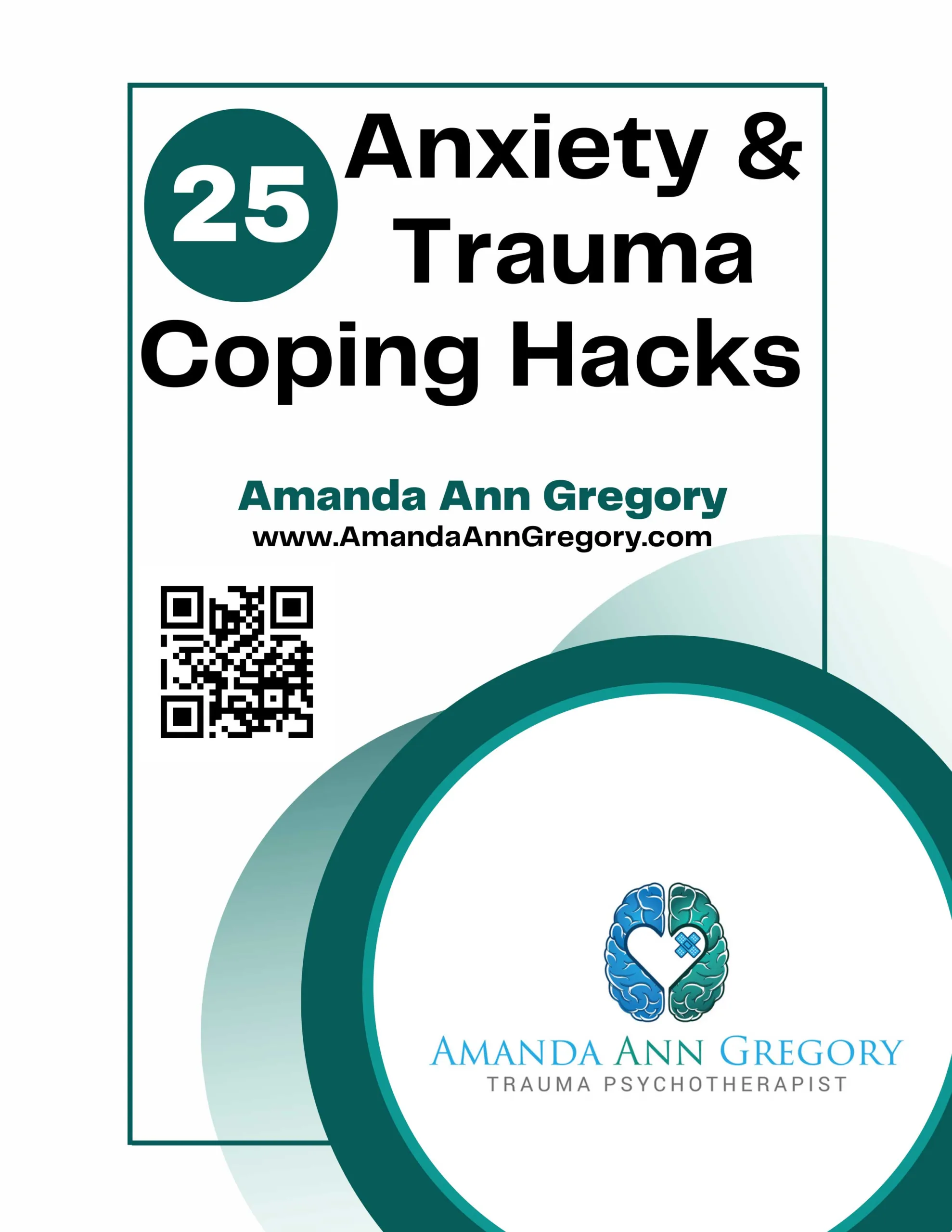Have you checked out your therapist’s bookshelf? You might spy classics such as Judith L. Herman’s Trauma and Recovery, Viktor Frankl’s Man’s Search for Meaning, Gavin de Becker’s The Gift of Fear, alongside bestsellers such as Lori Gottlieb’s Maybe You Should Talk to Someone, and Brené Brown’s Daring Greatly. A trauma therapist’s bookshelf may be a collection of well-known or niche titles, but just because a book is on their shelf, it doesn’t mean they would recommend that their clients read it.
As a trauma therapist and author of You Don’t Need to Forgive: Trauma Recovery on Your Own Terms, which some trauma therapists may recommend and others wouldn’t, here are three books that my colleagues and I may leave off our recommendations list.
1. The Body Keeps the Score
Bessel van der Kolk’s The Body Keeps the Score: Brain, Mind, and Body in the Healing of Trauma has sold over 2 million copies and spent over 150 weeks on The New York Times bestseller list, making it the most commercially successful book on this list.1 When it was published in 2014, it was unique in its focus on trauma processing, not medication, as a preferred treatment.
Many trauma therapists value the research, case studies, and recommendations provided. Psychiatrist van der Kolk encourages alternative treatment methods to support trauma processing, such as EMDR (Eye Movement Desensitization and Reprocessing), neurofeedback, somatic therapy, yoga, community theatre, and self-defense classes. Many of these methods are recommended by trauma therapists.
Jargon-laden
Some trauma therapists do not recommend The Body Keeps the Score as it’s not the best fit for all readers due to its use of scientific and medical terminology. Its focus on brain anatomy and neurobiological experiences can be too technical for a general reader. Some trauma therapists recommend books with similar information but written for a general audience.
Emotionally overwhelming
Many readers report feeling emotionally overwhelmed while reading this book, trauma therapists included. The Body Keeps the Score is not written to ease the reader into the material, does not include trigger warnings, and does not consider the emotional impact on the reader. Some trauma therapists will not recommend it to clients who need a book that offers both knowledge and emotional support.
Excludes the impact of intersectionality
The Body Keeps the Score does not address how traits that one is born with impact one’s exposure to trauma, the impact of the trauma, and access to treatment. This is important because trauma is not only inflicted and reinforced by individuals but also by social systems and institutions that operate at a level that transcends individual agency. A white, heterosexual man in American society will not be exposed to, experience, or recover from trauma in the same way as a Black lesbian woman. Some trauma therapists do not recommend this book due to fears that clients who’ve experienced systemic persecution may feel pathologized or blamed.
2. The Let Them Theory
Mel Robbins’ The Let Them Theory: A Life-Changing Tool That Millions of People Can’t Stop Talking About sold over six million copies in six months. 2 This book teaches readers the value and practice of abandoning the need and effort to control others while redirecting that focus on what they can control, such as their actions, reactions, and boundaries.
Therapists were among the first to read this book, applauding its focus on empowerment by encouraging readers to prioritize their well-being, rather than focusing on changing others. Robbins provides relatable real-life scenarios, such as how to deal with people who are passive-aggressive, judgmental, or struggling to manage their emotions.
Supported by research?
Robbins claims that her book is supported by research. Yet, therapists aren’t so sure, as her book lacks footnotes and citations. She includes a bibliography, but it does not reference any research claims made throughout the book. This exclusion has led some trauma therapists to avoid recommending The Let Them Theory, as they are unable to evaluate the validity of its claims.
Doesn’t apply to abusive relationships
The Let Them Theory doesn’t address relationships that may create or contribute to trauma or may impede one’s ability to recover from trauma. Therefore, the theory and its practices cannot be applied to abusive relationships, and trauma therapists are less likely to recommend it to their clients.
May not work for trauma responses
Robbin’s presents one generalized idea that does not consider complex trauma responses that occur in relationships, such as people pleasing to maintain safety, struggling to establish and maintain boundaries due to fears of abandonment, and conflict avoidance due to fears of being harmed. Trauma therapists may not recommend this book as the theory and its strategies may not be accessible or realistic for survivors to use.
3. The Diagnostic and Statistical Manual of Mental Disorders (DSM-5-TR)
The DSM-5-TR became an e-book bestseller in May 2020 and an Amazon bestselling paperback. It’s a manual written for mental health clinicians to use in diagnosing clients.3 Almost every trauma therapist I’ve met owns this book as it’s a necessary tool for understanding the symptoms, causes, and potential treatments for mental health disorders.
Not intended for general readers
I don’t know of one trauma therapist, or any therapist, who recommends that their clients read the DSM-5-TR. This book is a comprehensive and complex text that’s explicitly written for trained clinicians, researchers, and other mental health professionals. It requires specialized knowledge and training to interpret and apply the information. When discussing diagnoses, trauma therapists are more likely to tailor the information in this book to the client’s specific diagnoses and treatment needs.
Risks of self-diagnosis
There is a reason medical doctors say, “Please, don’t Google your symptoms.” Currently, the internet is not a reliable method for accurately diagnosing medical conditions, as it can lead to inaccurate self-diagnoses. Similarly, the DSM-5-TR is not a tool for self-diagnosis; even highly trained trauma therapists are not able to accurately use this book to diagnose themselves, and are aware that trauma survivors might be tempted to self-diagnose if this book is recommended to them.
Trauma diagnoses are outdated
The DSM-5-TR is a limited tool for diagnosing trauma as it’s slow to catch up with trauma research and treatment. The American Psychiatric Association revises the DSM every five to seven years when they delete, add, or update diagnoses based on new research. However, even after this period of time, not all research is integrated. Currently, several trauma diagnoses, such as developmental trauma and complex PTSD, are being researched, assessed, and treated, yet they are not recognized in the DSM-5-TR.13 4. Trauma therapists are aware that this book is unlikely to give their clients updated information about trauma diagnoses.
While bestselling books like The Body Keeps the Score, The Let Them Theory, and the DSM-5-TR provide value to some, they may not be the best resources for trauma survivors. Trauma therapists tend to recommend books that are accessible, emotionally supportive, up-to-date, and address the specific needs of trauma survivors. So, please don’t assume that your therapist would recommend all the books on their shelf. Instead, ask them if they think that book would be a good fit for you.
Purchase my book, You Don’t Need to Forgive

Sign up to get your Free eBook: 25 Anxiety & Trauma Coping Hacks

Hire me to speak at your event! Contact Me
References
1. The Conversation. (2022, August 8). The Body Keeps the Score: how a bestselling book helps us understand trauma – but inflates the definition of it. The Conversation. Retrieved July 27, 2025, from https://theconversation.com/the-body-keeps-the-score-how-a-bestselling-book-helps-us-understand-trauma-but-inflates-the-definition-of-it-184735
2. Robbins, M. Home – Mel Robbins. Retrieved July 27, 2025, from https://www.melrobbins.com/
3. Axios. (2022, June 14). The “psychiatrist’s bible” is suddenly a surprise bestseller. Axios. Retrieved July 27, 2025, from https://www.axios.com/2022/06/14/psychiatry-dsm-mental-health-diagnosis
4. Gregory, A. A (2025). You don’t need to forgive: Trauma recovery on your own terms. Broadleaf Books, 8.





